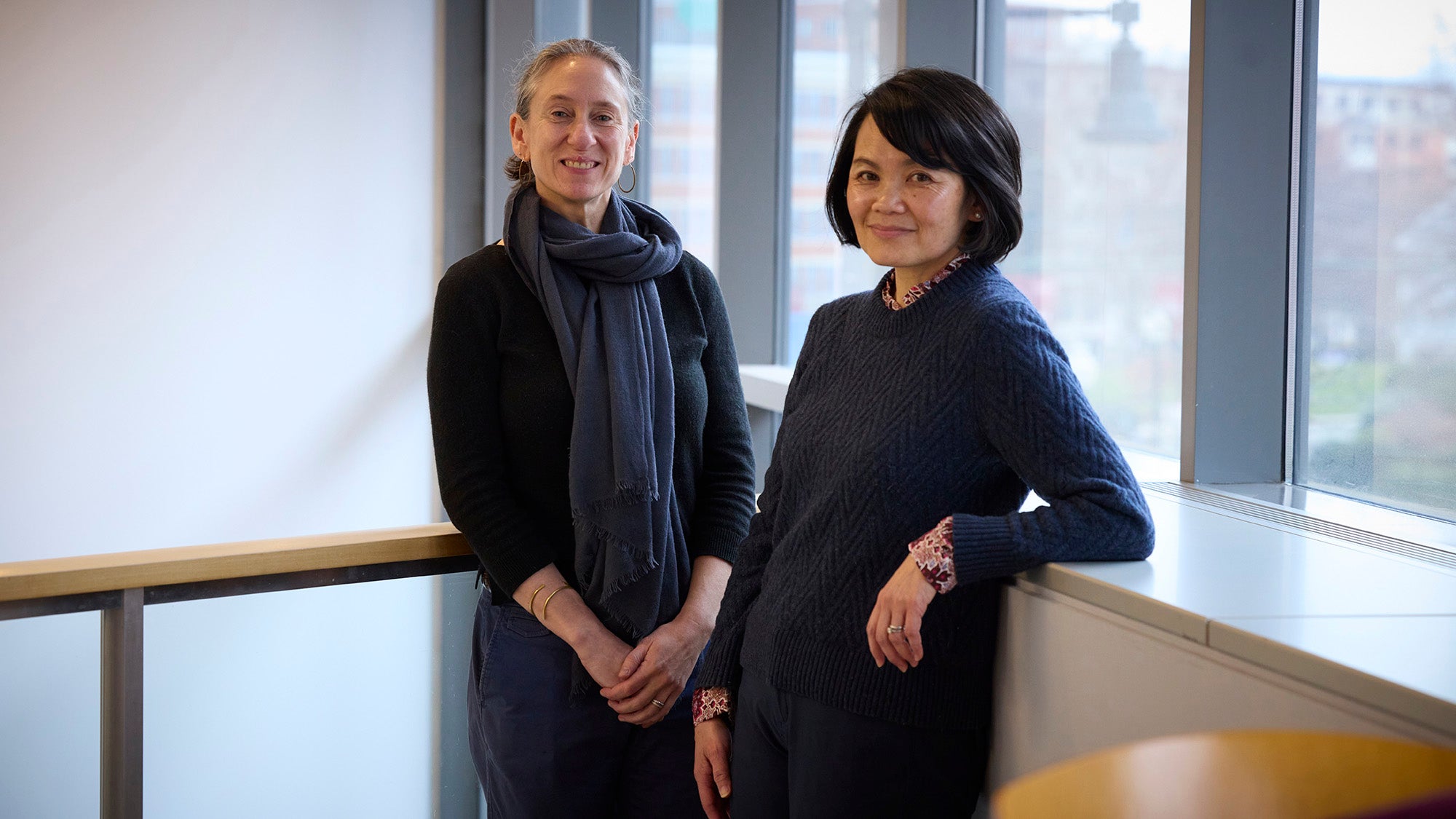Boosting community partnerships for immigrant mental health

At a time of heightened uncertainty for immigrants in the U.S., two efforts at Harvard T.H. Chan School of Public Health are focused on strengthening access to community mental health resources.
Both efforts involve connections with the Malden, Mass.-based Leah Zallman Center (LZC) for Immigrant Health Research, which works with partners—such as local immigrant communities, advocates, policymakers, and funders—to produce research aimed at spurring improvements in immigrant health and well-being.
Over the summer, health management student Jennifer Zhang, MPH ’25, did a practicum at the center and produced a policy brief on immigrant mental health that was finalized in November. The brief, created with colleagues at the LZC, summarized structural inequities impacting mental health among immigrants and proposed solutions.
Separately, a new collaboration between Harvard Chan School and LZC will address immigrant mental health and well-being through research, education, and partnerships with local groups. The work with the LZC—part of a new Harvard Chan initiative called Partnerships for Community Health and Immigrant Well-being—is being led by Maggie Sullivan, instructor and health and human rights fellow at the FXB Center for Health and Human Rights, and Jocelyn Chu, director of community engaged learning at Harvard Chan School, in partnership with the LZC.
Varied experiences, varying needs
The brief produced by Zhang and LZC colleagues outlined some of the life experiences unique to immigrants that pose risk factors for mental health, including trauma as a cause or result of migration, lack of access to health care services and insurance, lack of legal status, living in multigenerational households, and cultural and language barriers. Given these factors, it’s important to create tailored, trauma-informed, and culturally effective mental health services and policies to address immigrants’ unmet needs.
To address barriers to mental health treatment access for immigrants, the authors offered a number of solutions, such as expanding immigrants’ insurance eligibility and diversifying the mental health workforce to help overcome language and cultural barriers.

Zhang said that her biggest takeaway from working on the brief is that different immigrants have different needs. “You can’t lump immigrants into one bucket, because their experiences are varied,” she said. For example, childhood “language brokering”—referring to when children serve as translators for their parents because they’ve picked the language more quickly—has been linked with both negative and positive impacts on children’s well-being. In some cultures, language brokering can lead to depression and anxiety; in others, it doesn’t, because they feel proud to perform a valuable service for their family.
“Things that I saw as universal risk factors were, after all, not universal risk factors,” Zhang said. “That is a really important lesson and illustrates why we need tailored mental health services that are culturally responsive.”
Learning, partnering, teaching
Under the Partnerships for Community Mental Health and Immigrant Well-being initiative, Harvard Chan students and faculty will partner with the LZC to assess the landscape of community mental health resources available to marginalized immigrants in the greater Boston area and increase opportunities for public health students and faculty to be involved in community-based mental health research and practice. Practicum placements for Harvard Chan students at the LZC are already being planned for next summer.
“One of the things we’re thinking about is how we, as an educational institution, can be better stewards of community mental health in places in close proximity to the School—like Mission Hill, Dorchester, Mattapan, Chelsea, or East Boston—whether through student practicums, course development, or helping to grow mental health services that already exist in these communities,” said Sullivan.
She pointed out that a typical model of mental health care delivery may involve a therapist meeting with a patient, but that model may not line up with what immigrants need. “You can ask if a patient wants individual therapy, but that may not make sense if the person is most worried about the difficulty making rent to live in a densely crowded shared room,” she said. “They may say, ‘I don’t know how therapy is going to help me with this. I just need help with finding work and paying rent.’”
Beyond financial support for things like rent or food, immigrants may also benefit from group interventions such as yoga or art classes or mindfulness-based stress reduction training. Chu hopes that, in the future, information about these sorts of community mental health approaches can be incorporated into courses at Harvard Chan School.
A welcome partnership
Jessica Santos, LZC director, praised the contributions that Zhang made during her practicum. “She brought her own ideas and experiences to her summer work, and really contributed another dimension to the research we’d been looking at on mental health in immigrant communities,” Santos said.
She added that the partnership with the School comes at a critical time. “The next couple of years for immigrants will be very chaotic and insecure,” she said. Given the political landscape, she is heartened to be working with Chu and Sullivan. “They embody the type of work we do at the Zallman Center, with one foot on the ground, one foot in research—scholar-activism type work,” she said. “It’s exciting that Harvard Chan School is supporting that type of research.”


